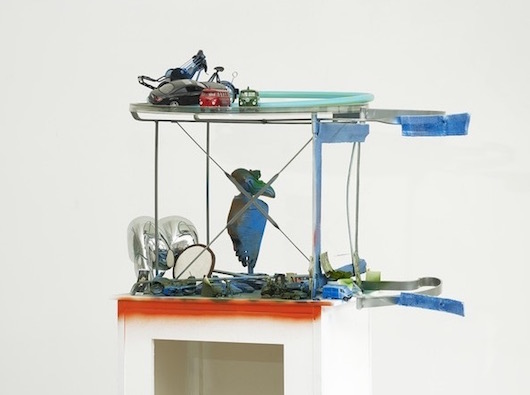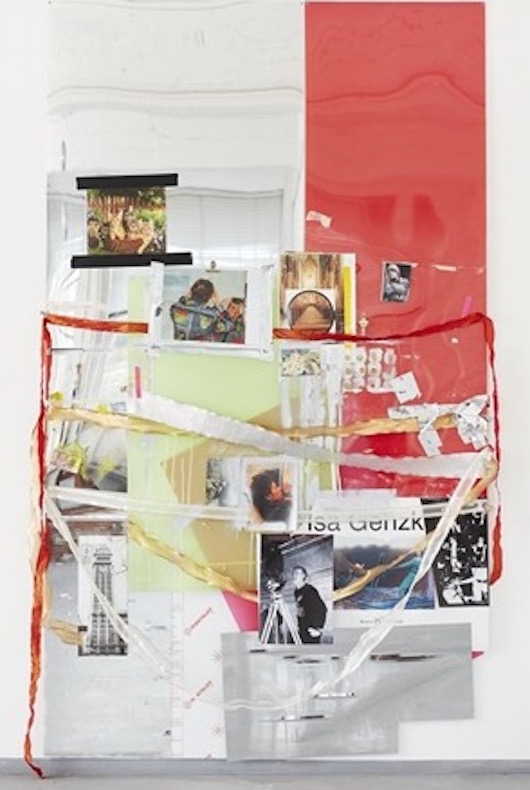 SEX
SEX In Which Things Are A Lot Worse In The Morning
 Monday, November 21, 2016 at 10:48AM
Monday, November 21, 2016 at 10:48AM 
Theater of the Absurd
by DAN CARVILLE
This rough-looking, pinned back challenge. You only laughed among your friends, those you knew for longer than you knew me. That is how I knew there was something dark inside you, and the laugh was a kind of easing.
There is a castle in a place we both know. Inside the tower, spaces oscillate between cramped and open. Part of me wanders from room to room there. I just wanted you to pose for one photograph. That was all. Candids aren't my style.
Rub a particular spot in concentric circles. Tell lies the whole time you are doing it. Tell truths afterwards.
Once I complained that you never asked me for anything. Then you demanded much that I never intended to give. You used my phone for a calculator, metaphorically. It was only good for that, I was only worthwhile to fill in some aspect of a desire. Sections of you, pieces of yourself never resemble the larger whole. I am so much more complete than you.
80, 50, 42, 10. Fold the rope so it burns at both ends. Near the castle, but not inside it, a little girl screams, "Take me with you."
There were much worse heartbreaks than this, much more awful people. Over time you start to admire the honest ones. Now I tell what exactly it was that made me feel nothing, so that the abscess never has to wonder about its removal. This is only kind: a ghost is a vicious kind of creature, the sort that never leaves well enough alone.

Meeting someone new feels impossible. So much of me is stuck behind somewhere. The only thing that takes my mind off the pain is reading. In one novel, a man visits the realm of Faerie. When he goes to leave, he sees the spectre of himself still resting on the beach. He says that he wishes he could spend the rest of his life there, in the dangerous and wild part of the universe. "Doesn't part of you remain there?" his friend asks.
One thing that bothers me in all the love stories I read is that they have such definite boundaries and strictures. Moving up and down on a wet point. Bending back the focus, rough at the base. Delight.
Fading out, the softness of your hands and shoulders. Light from the kitchen, the vastness of the pillows. The city stretched out behind us, everyone else planning for a future that was bound to come. I shook nervously, too far from home, and the refractions preyed upon me. We all become too much like one another, merely through proximity.
Let's be fully open. Even when you screamed at me in Bloomingdale's, I blamed myself. I always loved you, but I didn't bother saying it. You said that you loved espresso and popcorn, bedsheets and black boots. Those were all the things that can't really love you back.
In the mornings it is so much worse.

In my sorrow I go back to these old places. It is better than being taken by surprise, casually walking onto the grounds. I need to prepare myself for the fact that you will always inhabit this New York for me. I know you will never think about me within the walls at all. You have to be warm inside to notice the cold.
Putting my fingers in someone's mouth is never as intimate as I expect. Placing them elsewhere with the lightest touch. I try to be kind until I have a reason otherwise, but that reason usually arrives, coming up through the bedsprings.
Winter is the worst time to be alone. I received a letter from a woman I loved. Of course I never told her. It was an apology, an unneeded one really, since she at least had the courtesy to never promise me what she could not give. At the time I called her cruel, but now I think she was just being merciful to never give me a chance. She knew her heart better than I did: how small it was.
Dan Carville is the senior contributor to This Recording.






































